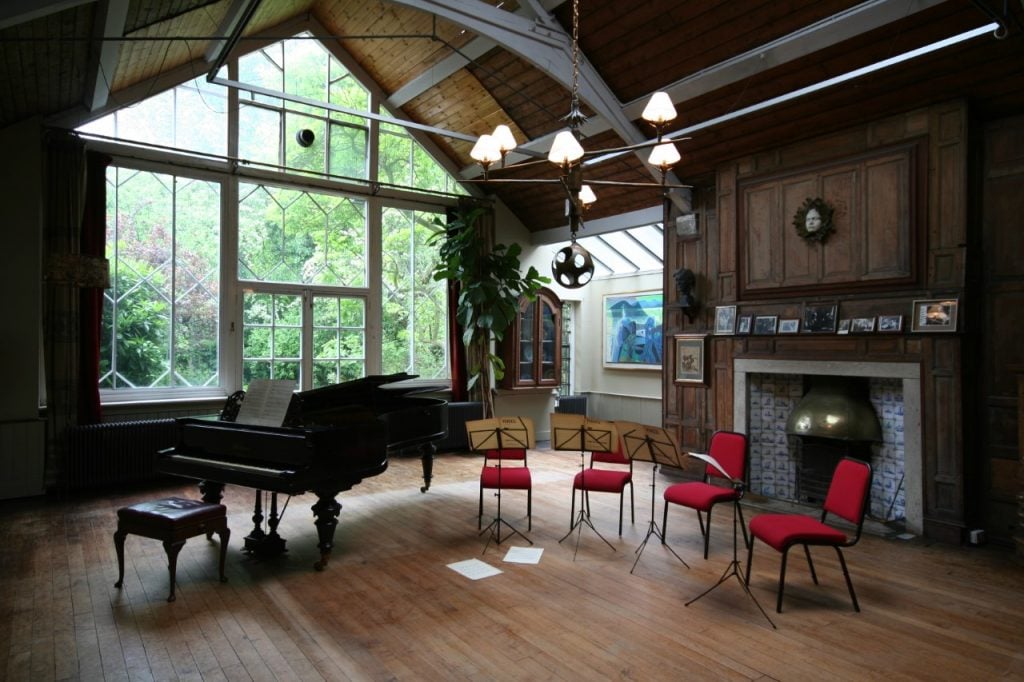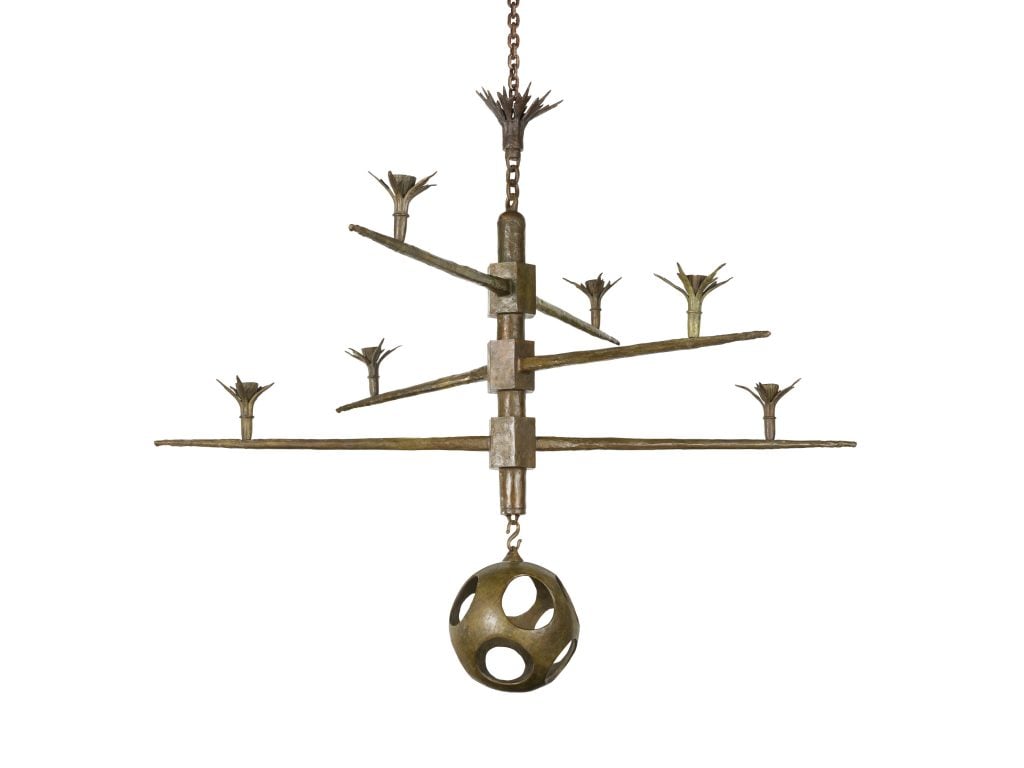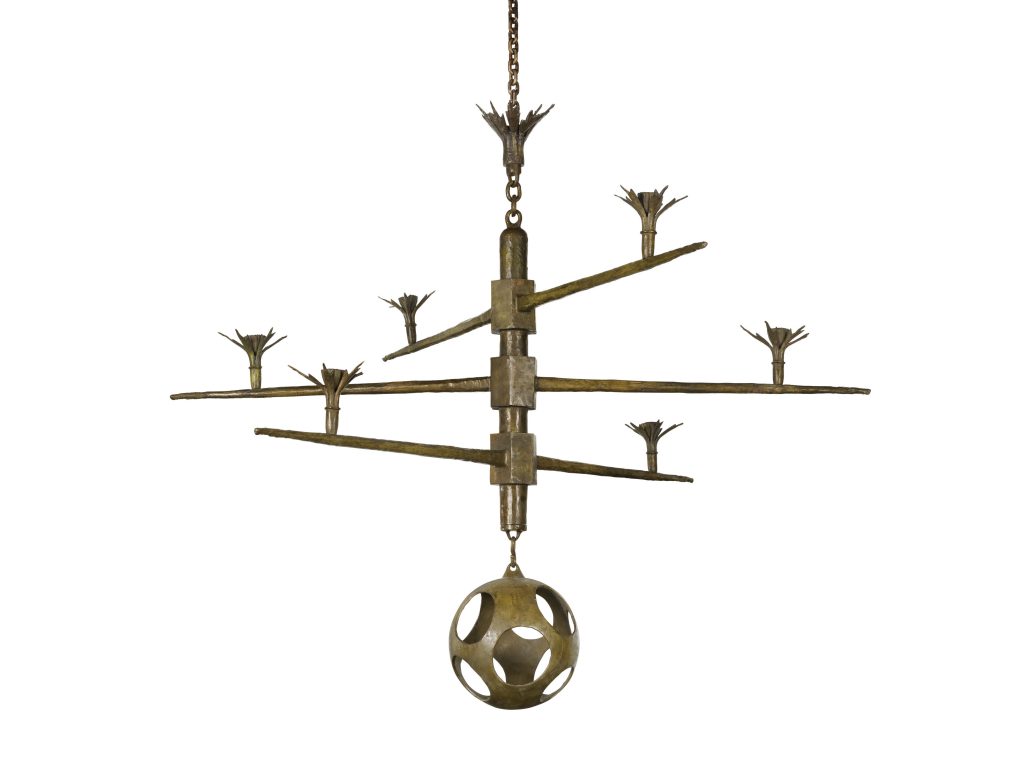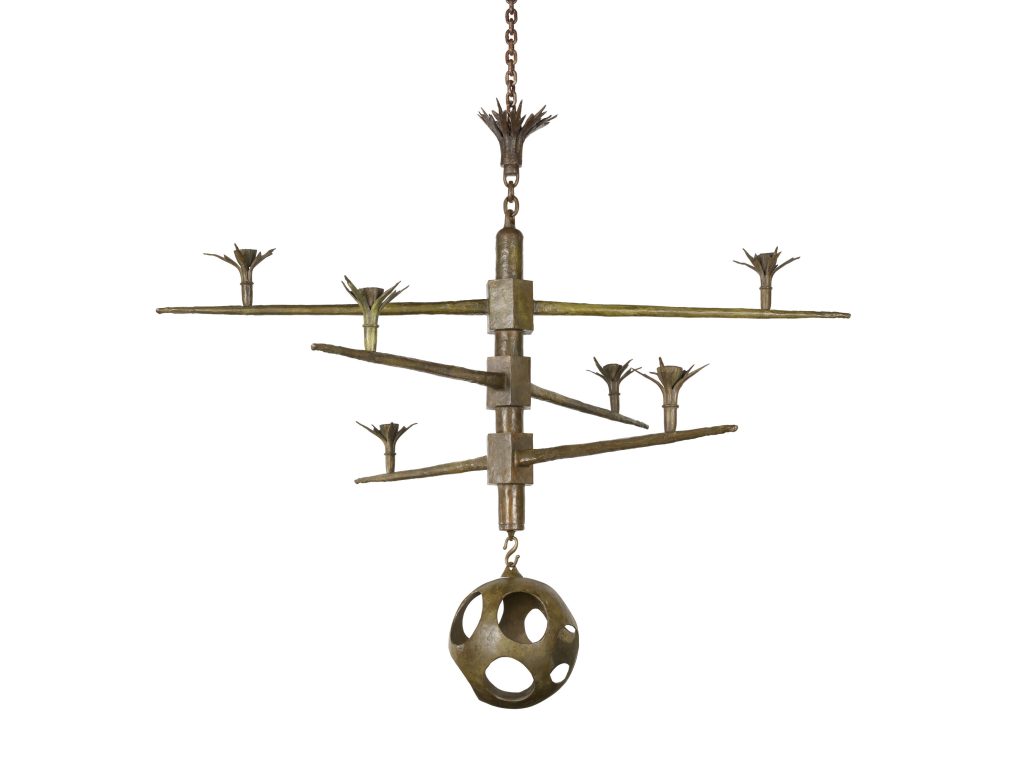Auctions
A Keen-Eyed Shopper Paid $700 for a Chandelier in an Antique Store. It Turned Out to Be an Alberto Giacometti Worth Up to $3 Million
The chandelier will soon hit the block at Christie's London.

The chandelier will soon hit the block at Christie's London.

Sarah Cascone

A rare chandelier by Alberto Giacometti could fetch up to $3 million at an upcoming Christie’s London sale—a big mark up from the £250 ($700) the owner paid for it back in the 1960s.
The buyer, British painter John Craxton, was pretty sure what he was getting when he spotted the work in a store window on London’s Marylebone Road. He recognized the lighting fixture as the one commissioned by his late friend Peter Watson, an art collector.
“Peter Watson came into his fortune when he was quite young, after his father died, so he had the freedom to explore what he was very passionate about, which was art and literature,” Michelle McMullan, a senior specialist in Impressionist and Modern art at Christie’s London, told Artnet News.
Watson, who was a cofounder and financial backer of the literary magazine Horizon, likely commissioned the chandelier for the publication’s office on London’s Bedford Square during one of his trips to mainland Europe, either in 1946 or ’47.

Alberto Giacometti, Chandelier for Peter Watson. Photo courtesy of Christie’s Images Ltd. 2023.
“Watson’s real passion at that time was Surrealism, and you can kind of see it in the sculpture, which combines what Giacometti is doing in the ’40s and the naturalistic elements of his decorative arts with the ball hanging from the bottom,” McMullan said. “That is a real Surrealist element, which is what makes it quite unique.”
The artist may have even been referencing one of his own early Surrealist works in the design, which recalls his 1931 piece Boule Suspendue.
Giacometti is less known for his more utilitarian design objects, but they were nonetheless a major part of his practice.

Alberto Giacometti, Chandelier for Peter Watson. Photo courtesy of Christie’s Images Ltd. 2023.
“Objects interest me hardly any less than sculpture, and there is a point at which the two touch,” the artist wrote in a 1948 letter to dealer Pierre Matisse.
“Alongside his more famous sculptural work, Giacometti did make decorative design pieces, the most famous of which were collaborations with the French interior designer Jean-Michel Frank,” McMullan said. “The chandeliers don’t come up at auction very often. They are usually unique editions.”
The top price one has ever fetched was £7.6 million ($10.4 million) at Sotheby’s London in 2018—but that piece featured one of Giacometti’s signature stick figures, increasing its desirability.
The artist’s most-expensive work ever to sell at auction went for $141.3 million at Christie’s in May 2015, according to the Artnet Price Database. The record-setting piece, titled L’Homme au doigt (Pointing Man), is also the highest-priced sculpture ever to hit the block.

Alberto Giacometti, Chandelier for Peter Watson. Photo courtesy of Christie’s Images Ltd. 2023.
Chandelier for Peter Watson is not expected to match those lofty heights, but Christie’s predicts it will hammer for £1.5 million to £2.5 million ($1.9 million to $3 million) at the “20th/21st Century: London Evening Sale” on February 28.
The piece only hung in the Horizon offices for about a year, at which point the publication folded and it was put into storage. Watson died just a few years later, in 1956. The chandelier likely passed to Horizon cofounder Cyril Connolly, but exactly how it wound up in an antique shop remains a mystery.
For roughly half a century, the buyer Craxton hung the piece in the music room in his home in London’s Hampstead neighborhood. Some years after his death in 2009, his estate finally decided to get the piece authenticated.
“It was a major security operation getting the chandelier to and from Paris, but it was all worth the effort,” Julie Webb, a private clients director for Aston Lark, told the Guardian.
Chandelier for Peter Watson is on view at Christie’s New York through January 31, before traveling to the house’s Paris showroom from February 8 to 14, and to London from February 22 until the sale. It’s only the second time the piece has ever been on public display, following a 2022 exhibition organized by the Craxton Estate at Norfolk’s Holt Festival to celebrate the centenary of Craxton’s birth.